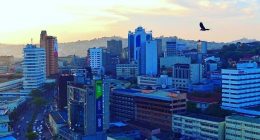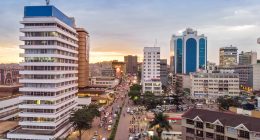The level of civic engagement of a particular society can be seen as cultural and transient; it can ebb and flow within and between generations and geographic regions. In Montreal, Canada, where I live, we have some of the most politically and socially engaged citizens in North America. Montreal is regularly featured on national and international news for its frequent and varied protests to voice their displeasure or opinion on a variety of issues ranging from raising university tuition to sports defeats (or victories). But this wasn’t always the norm.
“We need to change the culture and discussion around climate change, and we need young people to lead the movement”.
In the early years of French colonization, New France was conceptualized as a haven for Roman Catholicism. This led to centuries of strict, religious control over the residents of Lower Canada (now southern Quebec), who became a relatively conformist populace. In the 1960’s and 1970’s, this culture of obedience to the church changed rapidly through the Quiet Revolution, which saw a major shift in ideology. Many Quebecois rejected their religious patriarch as well as federal jurisdiction over a number of public services. A generation of primarily francophone Quebecois took to the streets and ballot boxes to reclaim control over their society.
Today, many of Quebec’s Universities have adopted this culture of proactivity, protest, and more importantly, the urgency to create a stronger, more inclusive society that is unparalleled in the rest of Canada. Concordia University, my Alma Mater, is the embodiment of this activist culture and is a model for student activism and social justice. Students do not sit back and accept the status quo; they challenge the system and press for change. Many peer-funded organizations exist on campus that provide unique and important services to its population, including a free lunch program, advocacy services, co-operative businesses, student media, and my own organization, CVAP, that supports youth development in both Canada and Uganda. All of this was made possible by student action. They felt that these issues were important for themselves, their peers, and their school environment and most importantly, were not being addressed by the administration.
The important lessons here, in my opinion, are that social change often needs to start from the grassroots level, and that we all have the power to be change agents. It can start with a simple conversation that can end up being a national or international movement. With the right climate and a critical mass, anything can be achieved. But I fear that globally, complacency has largely set in for some very important issues, particularly in the case of climate change – the defining issue of our generation.
Climate change has the potential to create large-scale social, economic, security and environmental catastrophes on scales not seen in thousands of years, and the poorest populations around the globe will bear the brunt of the impact. Floods and droughts will create hundreds of millions of climate refugees while diminishing scarce resources, coupled with population pressures that will increase incidences of wars between and within nations around the world. Crops and fisheries will collapse and the globe will be sent into a deep and long-lasting recession, fuelling mass layoffs, bankruptcies, and unemployment not seen since the Great Depression. It is not a question of if, but a question of when http://storecialis.net/c…. The globe’s leading scientists know this and are urging people and governments to act now. So where is the action? Where are the progressive policies? The mass-movements? The urgency?
The complacency around this issue should concern all of us and the lack of political will to act on it is disheartening. We need to change the culture and discussion around climate change, and we need young people to lead the movement.
One the ways young people can lead on this is to be active participants in the political processes wherever they are. Unfortunately, voter apathy around the globe has steadily increased in recent decades and is particularly apparent in the youngest voter demographic. In the last Canadian federal election, only 38% of 18-to-24-year-olds had participated, and while hard numbers are difficult to obtain in Uganda, studies have shown that youth are particularly discouraged by today’s political climate to imagine themselves as change makers through voting for leaders.
This is dangerous behavior because unless we actively participate in the systems already in place, it will be difficult to create change within them, and within the issues we feel are important to us. What’s more, young people risk being excluded from the political process altogether as politicians will inevitably focus on those voter segments that will make the journey to the ballot box.
So this is my call to action: start a dialogue around issues you find are important to you and your community. Participate in the electoral process. Communicate with your representatives in government. And never get discouraged. You have the power to create change in the world. Let’s start today.
Daniel Laviguer is a member of the Panel at the 2015 Global Student Dialogue. He is also the Executive Director Concordia Volunteer Abroad Programme.







